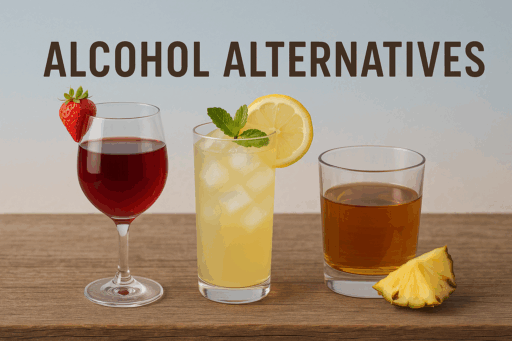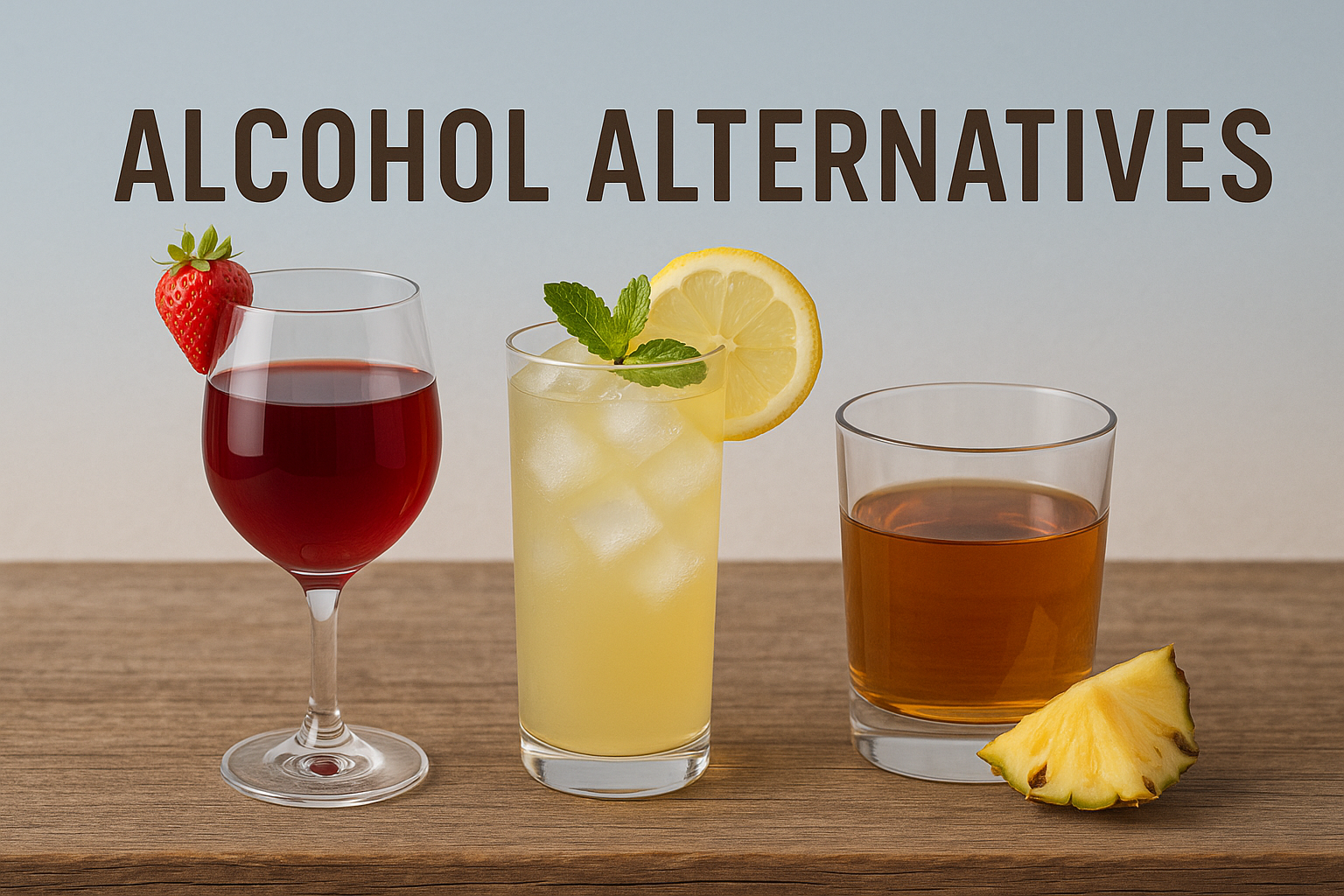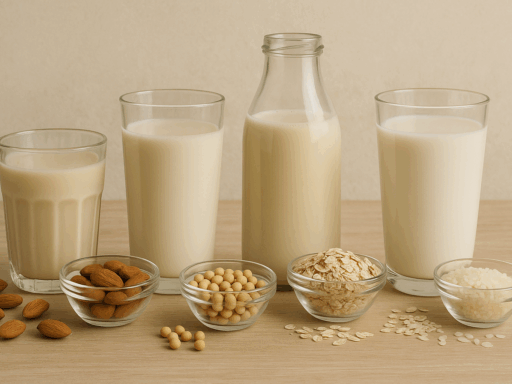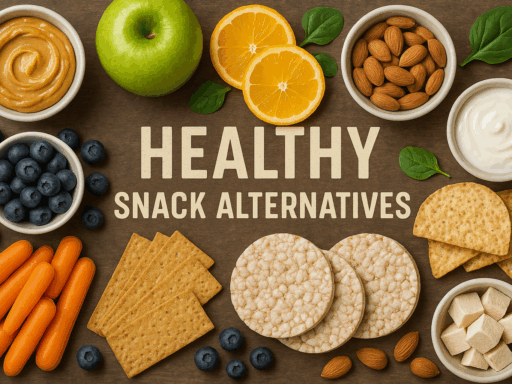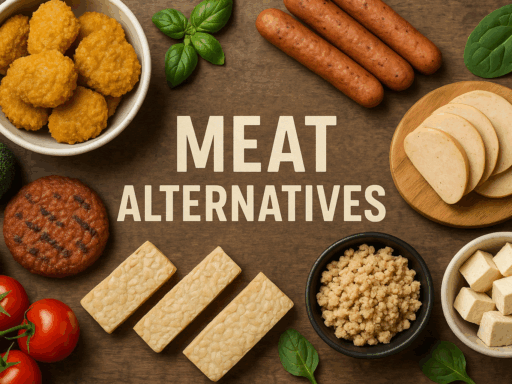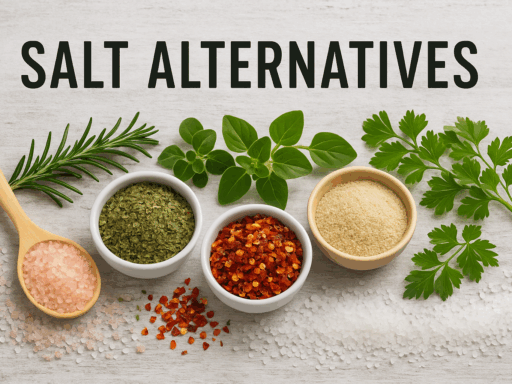As health-conscious consumers look for ways to live a more mindful lifestyle, alcohol alternatives are gaining significant popularity. Whether for health reasons, personal preference, or environmental concerns, people are increasingly turning to alcohol alternative drinks that offer the social and sensory appeal of alcohol, but without the negative effects of intoxication. This article explores the best alcohol alternatives, their sustainability, applications, challenges, and who is producing them. It also covers industry and consumer challenges, providing insights into the alcohol alternatives to relax, healthy alcohol alternatives, and alternative drinks to alcohol that are shaping the future of drinking culture.
What Are Alcohol Alternatives?
Traditional alcoholic beverages come with well-documented health risks such as addiction, liver disease, impaired judgment, and a negative impact on sleep. Alcohol alternatives are beverages that replicate the experience of drinking alcohol without the harmful effects. These drinks can range from non-alcoholic spirits to botanical tonics and fermented beverages, offering complexity in flavor, texture, and benefits. The global rise of the sober curious movement is further driving interest in these healthier options.
Popular alcohol alternatives include:
- Non-alcoholic spirits (e.g., gin, whiskey, rum substitutes)
- Non-alcoholic wine and beer
- Fermented beverages like kombucha and shrubs
- Mood-enhancing tonics with adaptogens, CBD, and nootropics
These beverages offer a way to participate in social drinking rituals while avoiding the health risks and side effects of alcohol.
Leading Alcohol Alternatives and Their Applications
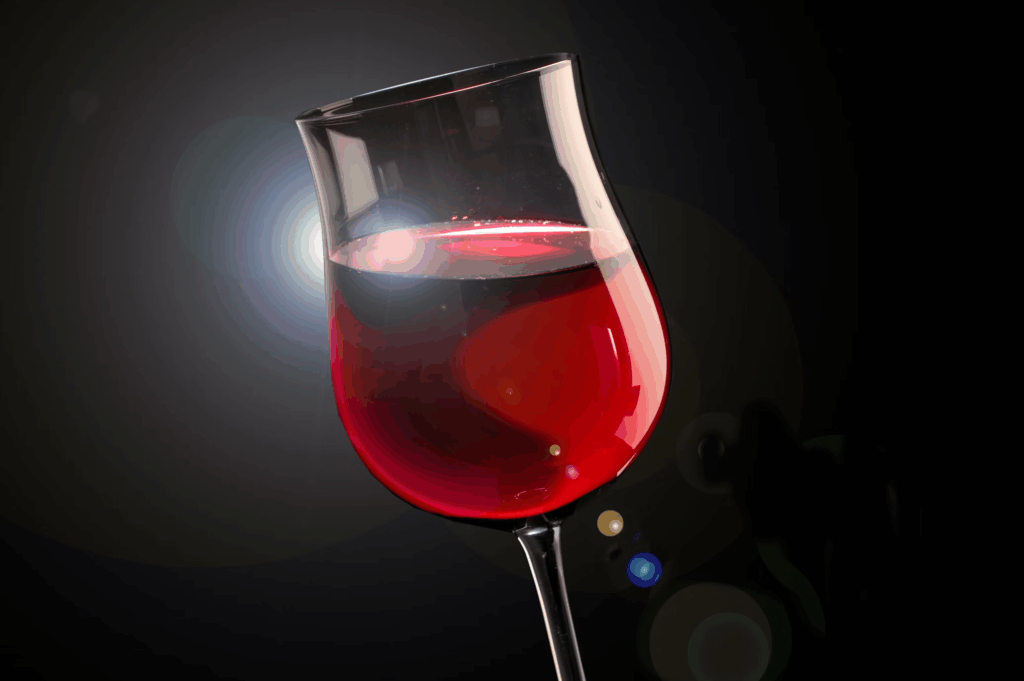
1. Non-Alcoholic Spirits and Wines
Non-alcoholic spirits are gaining popularity for their ability to replicate the taste and complexity of alcoholic drinks, such as gin, rum, or whiskey, without the alcohol content. Brands like Seedlip, Lyre’s, and Monday are at the forefront of this category. Non-alcoholic wines also continue to evolve, offering blends with similar flavors and finishes to traditional wines but with zero or very low alcohol content.
- Applications: These spirits are ideal for mocktails, social gatherings, and culinary pairings. They are especially appealing in bars, restaurants, or at home for those who want to partake in social drinking rituals.
- Best Alcohol Alternatives: Popular brands like Seedlip, Lyre’s, Monday, Fre Wines, and Leitz lead the market, offering complex and sophisticated options.
- Healthy Alcohol Alternatives: These beverages are lower in calories, sugar, and may even be enhanced with functional ingredients like botanicals, antioxidants, and vitamins.
Challenges:
- Taste Gap: While non-alcoholic spirits have come a long way, some consumers still find it difficult to adjust to the absence of alcohol in the flavor profile.
- Pricing: Non-alcoholic spirits can be expensive, sometimes priced similarly to their alcoholic counterparts, which may deter some buyers.
- Accessibility: While available online, many non-alcoholic wines and spirits are not yet widely available in all regions.
Sustainability: Non-alcoholic spirit and wine brands often focus on sustainable sourcing of ingredients like herbs, spices, and fruits. Companies like Seedlip highlight their use of regenerative farming practices for their botanicals, reducing their carbon footprint and reliance on harmful pesticides.
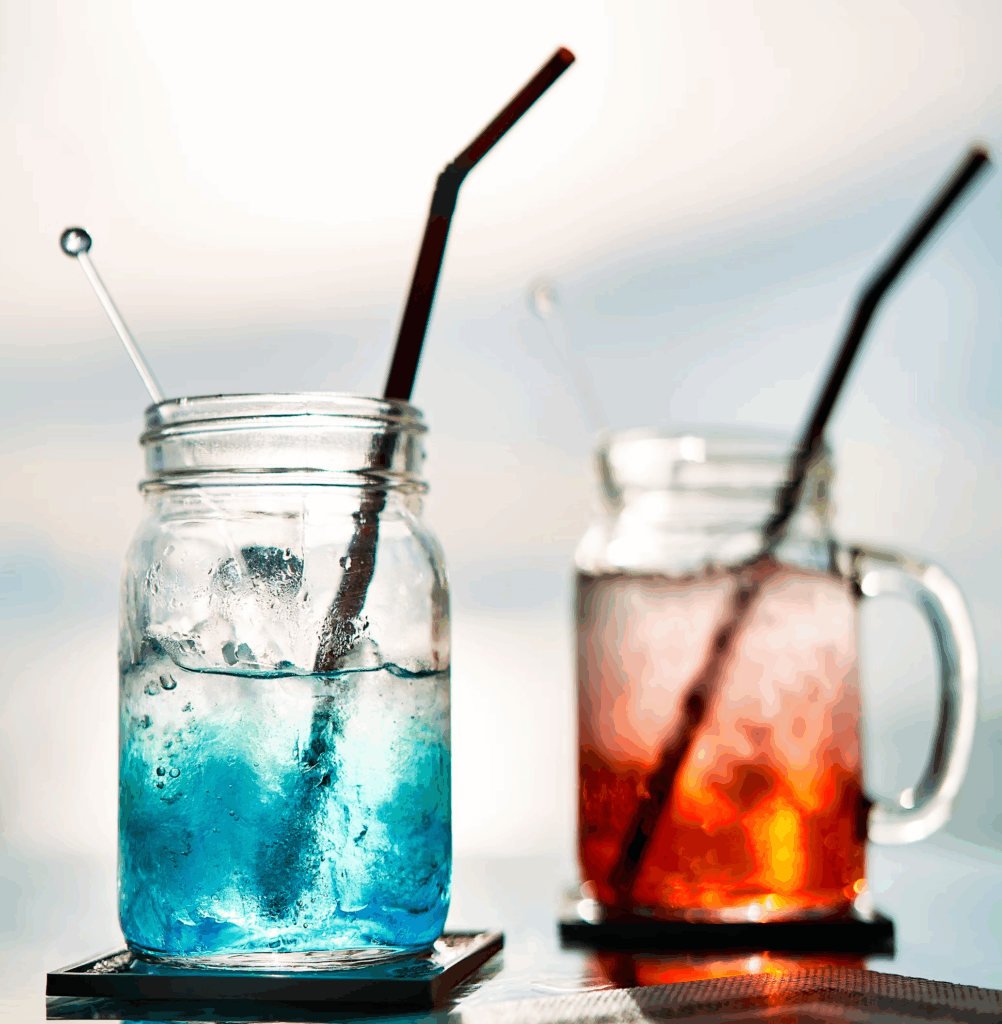
2. Functional Relaxation Drinks
Functional relaxation drinks are designed to help people unwind without the use of alcohol. These drinks often include adaptogens (e.g., ashwagandha, reishi), nootropics (like GABA), or CBD to provide relaxation and mental clarity. Brands like Kin Euphorics, Recess, and Hiyo offer beverages specifically crafted for social occasions or to promote well-being, without the intoxicating effects of alcohol.
- Applications: Used for unwinding after work, socializing, or as a natural sleep aid.
- Best Alcohol Alternatives: Kin Euphorics and Recess are leaders in the functional relaxation drink category, offering products that help reduce stress and support focus.
- Alternative Drinks to Alcohol: These drinks are becoming an essential option in the wellness industry, combining relaxation with mood enhancement.
Challenges:
- Subtle Effects: Some consumers report that the effects of functional relaxation drinks are too subtle, making them unsure of their impact.
- Regulatory Barriers: Particularly with CBD-infused drinks, regulations around usage and sales vary by region, making availability inconsistent.
- Taste Profile: While some functional drinks taste pleasant, others with adaptogens and herbs may be too bitter or earthy for some consumers.
Sustainability: Many of these brands are embracing sustainability by using organic ingredients and minimizing waste through eco-friendly packaging. For instance, Recess uses 100% recyclable cans, and Kin Euphorics emphasizes plant-based ingredients.

3. Kombucha and Fermented Elixirs
Kombucha, a fermented tea, is a naturally effervescent drink made with tea, sugar, and a symbiotic culture of bacteria and yeast (SCOBY). This drink is widely recognized for its probiotics, antioxidants, and digestive benefits. Brands like GT’s Living Foods and Health-Ade are some of the top producers of kombucha, while shrubs (fermented fruit vinegars) are becoming increasingly popular as alcohol alternatives.
- Applications: Kombucha can be enjoyed as a refreshing beverage, mixed into mocktails, or paired with meals. It also has a growing presence in the wellness space due to its gut-health benefits.
- Healthy Alcohol Alternatives: Kombucha is not only low in sugar and calories but also rich in probiotics, which support gut health and digestion.
Challenges:
- Taste: Kombucha’s distinct vinegar-like taste is often a barrier to its acceptance by new consumers.
- Alcohol Content: Some kombuchas may contain trace amounts of alcohol due to fermentation, leading to concerns about whether they truly qualify as non-alcoholic drinks.
- Carbonation and Shelf Life: The effervescence in kombucha can decrease over time, and the product must be stored and transported carefully to maintain freshness.
Sustainability: Kombucha and fermented drinks are generally more sustainable than alcoholic beverages. The production process requires fewer resources, and many kombucha brands use organic ingredients, recyclable bottles, and eco-friendly shipping methods.
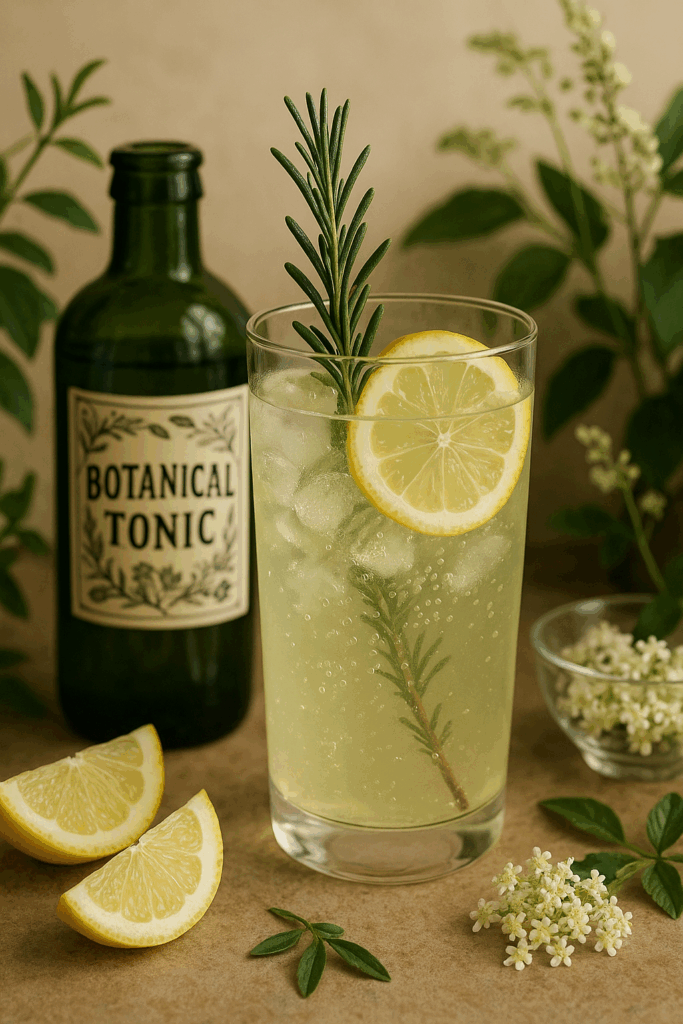
4. Adaptogenic and Botanical Tonics
These tonics are crafted with adaptogens (e.g., Rhodiola, maca) and botanicals like chamomile, lavender, and lemon balm to help the body adapt to stress and enhance focus without alcohol. Companies like Three Spirit, Ghia, and Curious Elixirs are leading the botanical beverage sector. These drinks are often infused with functional ingredients like nootropics or herbal remedies.
- Applications: Used for socializing, relaxing after work, or as a pre-dinner drink to promote digestion and clarity.
- Best Alcohol Alternatives: Three Spirit and Ghia are revolutionizing the market by blending artful botanical flavors with functional ingredients.
- Healthy Alcohol Alternatives: These beverages promote wellness, calm, and mental clarity, making them an excellent choice for mindful drinking.
Challenges:
- Flavor: The herbal and earthy flavors of these drinks can be off-putting to some people, especially those unfamiliar with botanicals.
- Effectiveness: Like functional relaxation drinks, the effects of these beverages can be subtle and vary by individual.
- Cost: Due to the quality of the ingredients and the artisanal production methods, these tonics can be more expensive than traditional soft drinks.
Sustainability: Brands like Three Spirit emphasize sustainability by using locally sourced, organic herbs and recyclable packaging. Ghia is also committed to responsible sourcing and eco-friendly materials.
Sustainability of Alcohol Alternatives
Sustainability plays a central role in the production of alcohol alternatives, which are designed not only to improve health but also to minimize environmental impact. Many brands prioritize:
- Organic farming for botanicals and herbs
- Low-water consumption crops like kombucha tea leaves and agave
- Biodegradable or recyclable packaging to reduce plastic use
- Ethical ingredient sourcing from regenerative or fair-trade certified farms
Brands like Seedlip, Three Spirit, and Recess are committed to producing environmentally friendly beverages by using sustainable ingredients and packaging, aiming to lower their carbon footprint and contribute positively to the planet.
Challenges of Alcohol Alternatives
Despite the benefits and growing popularity of alcohol alternatives, there are several challenges to their widespread adoption:
1. Taste Preferences and Experience
- Many consumers find that alcohol alternatives still can’t fully replicate the taste and sensory experience of drinking alcoholic beverages.
- Even with sophisticated flavor profiles, some may miss the social buzz or warmth that alcohol provides.
2. Cultural and Social Norms
- In alcohol-centric cultures, choosing alcohol alternatives can lead to stigma or exclusion, especially in situations where drinking is deeply ingrained in socializing and rituals.
- Non-drinkers may feel marginalized in certain social environments where alcohol is the central focus.
3. Cost and Accessibility
- Alcohol alternatives can be expensive compared to traditional alcoholic drinks, particularly high-end non-alcoholic spirits or wines. This can make them less appealing for budget-conscious consumers.
- Many of these products are available mainly online or in specialty stores, which limits their accessibility to the average consumer.
4. Regulatory Hurdles
- CBD-infused beverages and functional relaxation drinks face varying legal regulations, especially in regions where CBD or adaptogens are not yet fully legal or regulated.
- Alcohol alternatives with functional ingredients may require more oversight or approval, leading to delays in production and market availability.
Alcohol alternatives are no longer just an afterthought or a temporary trend—they are an innovative, healthy, and socially conscious shift in the drinking culture. From non-alcoholic spirits and functional relaxation drinks to kombucha and botanical tonics, there are now countless options that cater to consumers looking for a healthier way to drink. While challenges around taste, cost, and cultural acceptance persist, the future looks promising for these beverages, thanks to increasing consumer demand and growing sustainability efforts in production.
Whether you are looking to reduce your alcohol intake, adopt a healthier lifestyle, or simply explore new options, the market for alcohol alternatives offers plenty of exciting choices. By embracing these options, you can enjoy the social and sensory experiences of drinking—without the hangover or negative health impacts. As these products become more widely available and affordable, the trend towards mindful drinking and sustainable alternatives will continue to grow.
Sources:
- https://www.grandviewresearch.com/industry-analysis/non-alcoholic-beverages-market
- https://www.forbes.com/sites/amandalauren/2023/07/09/sober-curious-gen-z-alcohol-alternatives/
- https://www.nutritionaloutlook.com/view/adaptogen-drinks-surge-market-demand
- https://www.bevindustry.com/articles/95957-better-for-you-non-alcoholic-drinks-rise-in-popularity

